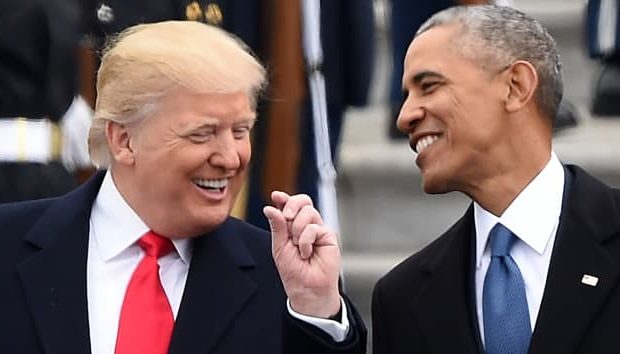Throwback Thursday: Knowing Trump’s racist views lay on the horizon, why didn’t Obama pardon Dreamers during his Lame Duck period?
By Suzy Khimm | Washington Post | DEC. 6, 2011 | Photo credit: Robyn Beck
Over at the Monkey Cage, Gregory Koger suggests that President Obama could use his executive authority to help illegal immigrants become legal. Koger, a political scientist at the University of Miami, argues that Obama could use presidential pardons to “grant unconditional amnesty (permanent residency)” to all illegal immigrants, or a certain subset that meet certain qualifications. Citing a report from the Congressional Research Service that describes pardon power as “essentially unfettered,” Koger concludes that the failure of Obama to enact immigration policy through this channel “strikes me as an interesting case of non-action.”

(AFP/Getty Images)
In reality, the president does not possess this authority, as unauthorized presence in the U.S. is a civil violation, not a criminal one. Presidential pardon power only applies to federal crimes, described as “offenses against the United States” in the Constitution. As such, “a pardon can’t make someone a citizen or lawful resident,” explains John Harrison, a law professor at the University of Virginia. “Deportation is not a criminal proceeding, it’s a civil process that removes from the country someone who is not entitled to be here.”
Only Congress can change the terms for granting immigration status or citizenship, whether for all immigrants or a subset of people. And that’s why an immigration overhaul has stalled for so many years.
That said, Obama does have the ability to influence deportation policy by instructing federal agencies to use certain forms of “prosecutorial discretion” to decide which illegal immigrants to target for removal. At the beginning of his administration, Obama made it a policy to focus on deporting illegal immigrants who had committed crimes or otherwise posed an immediate threat to national security. (Though some immigration advocates argue that the administration hasn’t carried out this policy as promised, pointing out that only half of the 400,000 immigrants deported in 2010 had criminal records.)
In June, moreover, Obama’s immigration chief, John Morton, issued a memo that instructed federal Immigration and Customs Enforcement to go easy on deporting individual immigrants who were vulnerable or had particularly strong community ties. On a case-by-case basis, federal agents are supposed to weigh factors that include whether the immigrant in question came to the U.S. as a young child, “whether the person is a military veteran; has made ‘contributions to the community’; acts as a caretaker of the infirm or disabled; or is very young, very old, pregnant, or nursing,” as well as education status, as I reported for Mother Jones over the summer. But though it’s been labeled by some as the “backdoor DREAM Act,” the administration’s policy shift still does nothing to change the legal residency or citizenship of any illegal immigrants.
What’s more, even individual immigrants who avoid deportation under Obama could just as easily be targeted by the next president in the absence of congressional action. “The most the president can do is effectively a temporary reprieve from removal,” says Marshall Fitz, head of immigration policy for the left-leaning Center for American Progress. “And that’s just hitting the pause button.”






